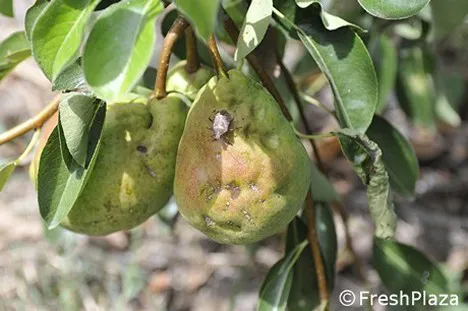There are no short-term solutions to combat the Asian bedbug. It is necessary to invest in research and adopt new strategies. This is part of what emerged at Macfrut 2021 during the conference on the Asian bedbug, organized by Agri2000 within the Biosolutions International Congress.
"We are working on a project promoted within the Rural Development Programme 2014-2020, whose purpose is to provide products and technical solutions. With regard to organic products, Beauveria Bassiana has determined the mortality of the treated individuals in the laboratory, with values ranging from 90 to 100 percent. The use of powders derived from rocks has also proved to be very interesting, although it is difficult to find pulverizers. We are currently experimenting to use and develop a structure, the Augmentorium, which allows to attract and breed bugs inside it, allowing only parasitoids to enter and exit through a net with a fitting mesh. The Augmentorium could become a key tool, capable of limiting the Asian bug and encouraging the multiplication and stabilization of its parasitoids,” said Renzo Bucchi, scientific manager at Agri2000.

Luca Casoli, director of the Plant Protection Consortium of Modena and Reggio-Emilia, with regard to the antagonists added that "we have already found a general parasitization of more than 38% resulting from the complex of parasitoids, and an 8.1% of Vespa Samurai ovatures. This is an important signal in terms of coexistence between parasitoids and Vespa Samurai."
As for research-related contributions, it was Gabriele Rondoni, from the University of Perugia, who took stock of ongoing experiments. "We have found that plants respond to the oviposition of Asian bugs through the induction of synomones. The fava bean shows a direct defense to the Asian bug, and we are finding similar mechanisms on tomato. Enhancement of plant defenses may therefore represent another sustainable control strategy."
The discussion then turned to Pietro Castaldini from the technical management of the cooperative Patfrut. "The problem of the Asian bug is absolutely not over; it is still a serious issue. We have witnessed very early damages in 2021, a very dramatic summer harvest especially for pears. Our chemical defenses have been used, but side effects aside, they are not enough. With the single-row anti-insect nets, the results are slightly better, but they must be used together with chemical substances when the migration of the parasite is at its peak. We have tried alternative strategies and we have noticed that, with simple traps grafted with pheromones, with a container full of soapy water underneath, the catches are quite significant, higher than with all other traps. However, this is not enough, as pears are undergoing great difficulties."
